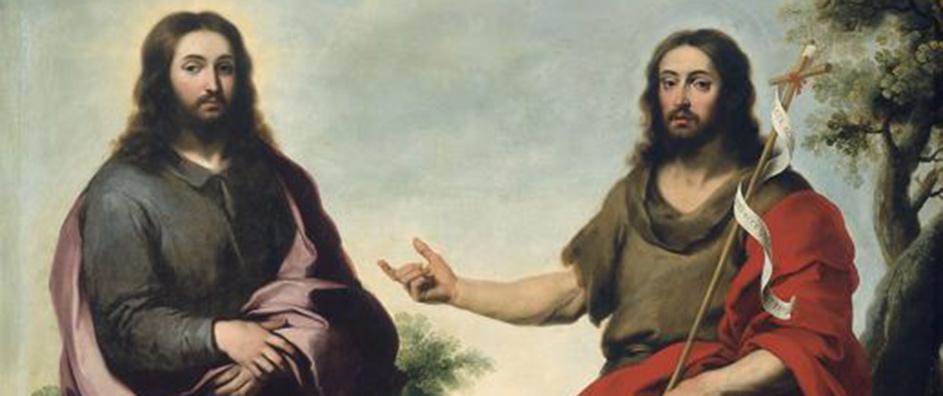In the rich tapestry of world religions, the Baha’i Faith emerges as a distinct and compelling narrative, particularly through its portrayal of the prophets. At the heart of Baha’i teachings lies the profound assertion that all prophets are identical in purpose and essence, presenting a unified vision of divinity. This perspective raises an intriguing question: what does it mean to perceive all prophets as identical? Are they mere reflections of a singular truth, or do they encapsulate diverse revelations tailored to the cultural contexts of their times? This inquiry invites both contemplation and challenge.
The Baha’i view posits that prophets, or Manifestations of God, are not merely historic figures confined to their epochs; rather, they serve as conduits of divine wisdom. This idea invites a deeper examination of their role in human progression. Each prophet, according to Baha’i teachings, brings forth a message appropriated for the age in which they appear—these messages, while articulated differently, are fundamentally about the same ultimate truths: the oneness of humanity, the existence of God, and the essential moral and ethical teachings that bind humanity together.
Consider, for instance, the figure of Jesus Christ, who taught love and compassion, paralleling the teachings of Muhammad, who emphasized justice and community. In Baha’i thought, these messages converge into a cohesive ideology that transcends individual religious boundaries. This notion of unity among prophets encourages a paradigm shift from divisive perspectives towards an inclusive understanding of spiritual teachings.
One pillar of Baha’i belief is the principle of the unity of religions. This doctrine asserts that all religions stem from the same divine source; therefore, the teachings of the prophets must be viewed through the lens of their shared purpose rather than their outward differences. This unity underlines a crucial theme—the continuity of revelation, suggesting that mankind is on a progressive journey, each prophet building upon the teachings of their predecessors. This brings forth an essential question: how does recognizing shared divine messages influence interfaith dialogue and relationships? Can humanity genuinely transcend sectarian divides in pursuit of a common spiritual goal?
Throughout history, humanity has witnessed various interpretations of prophetic teachings, often leading to fragmentation and conflict. The Baha’i Faith advocates for a fresh lens through which believers can rediscover the teachings of all prophets, recognizing their essential identity rather than their apparent discrepancies. This perspective not only fosters mutual respect among different faiths but also enriches the spiritual discourse, enabling believers to find common ground rather than grounds for dissent.
Crucially, the Baha’i understanding extends beyond the mere acknowledgment of uniformity among prophets. It posits that this identity is not superficial but rather profound, embedding each prophet with divine authority that caters to the spiritual needs of humanity at specific junctures in history. This implies a developmental arc of theological understanding that parallels human evolution—both morally and socially. Viewed in this light, each prophet essentially reflects the evolving consciousness of humanity itself, an intriguing synthesis of the divine and the personal.
However, embracing such a holistic view presents challenges. In a world rife with religious conflicts, the proposed identity of prophets may be met with skepticism. People often cling to exclusive truths, convinced that their faith offers the only path to salvation. This necessitates a compassionate yet robust discourse addressing the fears and uncertainties that accompany such radical inclusivity. To assert that all prophets are identical is to invite a reckoning of the very foundations upon which many have built their spiritual lives.
Furthermore, the Baha’i view implores adherents and non-adherents alike to engage with the transformative power of these prophetic teachings. It calls for a reevaluation of how societies organize themselves in light of these unified truths. If all prophets indeed convey divine will, then the moral imperatives present in their teachings—such as love, justice, and unity—should compel humanity towards collective action to foster peace and understanding across diverse cultures. This challenges individuals to consider whether they are living up to such high ideals, ultimately asking how far they are willing to stretch their beliefs for the sake of unity.
As one delves deeper into the implications of this Baha’i view of the prophets, it becomes increasingly clear that the radical assertion of their identity propels individuals beyond personal spirituality towards a communal ethos. This orientation encourages a synthesis of religious tenets that can, together, form the foundation for a more equitable and harmonious world. The essence of these teachings is not merely theological abstraction; it is a clarion call to action that beckons followers towards greater empathy and communal responsibility.
In conclusion, the Baha’i perspective that each prophet is identical in purpose invites both reverence for their unique contexts and an aspiration towards their universal messages. By engaging with this idea, humanity can move closer to a global community unified by its diversity, using the shared wisdom of prophetic teachings as a guiding light. The challenge remains in how fully individuals are willing to embrace this notion, but the potential for transformation is profound and resonates deeply in the striving hearts of those seeking truth and connection in a fragmented world.
